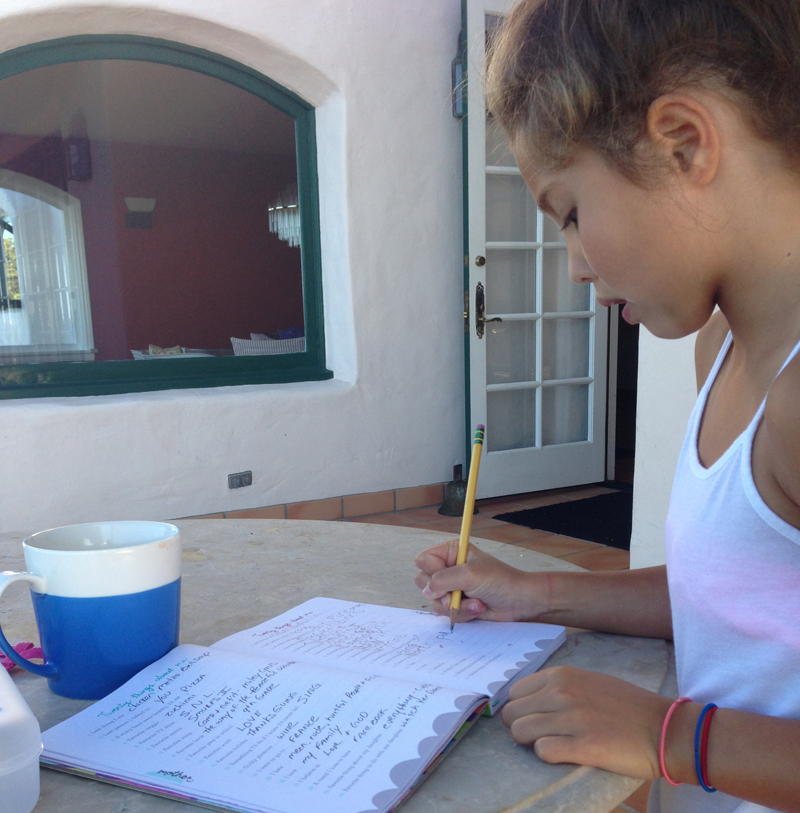The other day, I sat with a group of mommy friends waiting for our girls to get out of dance class. We dished about the many challenges our kids are going through. Always something, and in my case it’s a different problem with a different child every day.
My girlfriend had her feathers all ruffled up, struggling with her 10-year-old daughter who was failing math. The girl is a super talented child, lovely and well-rounded. She’s a great student but completely lost in math class and exhausted by her efforts to try to grasp new concepts that are way beyond her artistic mind. Her mom has met with her teacher (whose attitude was anything but helpful), hired a tutor as instructed, and even enrolled her daughter in a special after-school math program in the hopes of turning the numerical light bulb on.
My girlfriend was so upset, blaming herself for her demanding professional commitments – bicoastal issues that forced the family to move around – and totally drowning in mommy guilt. She was considering pulling her daughter out of dance class, which by the way is one of her only joys and she’s SUPER talented.
All this chatter brought me back to the two years I struggled terribly with my own daughter’s self-confidence issues. She was an honor student but couldn’t get out of her own way to develop good study habits. She worked 10 times harder than she had to, second-guessed every scholastic move she made and cried more than she wrote with every paper. It was two of our saddest years.
The hardest part for me, as a mother, was feeling helpless to solve her issues and getting lost in my own frustrations alongside her. I was filled with empathy for my girlfriend, remembering how difficult that phase was.
Then I remembered the conversations that helped us navigate through it. Reminding my daughter that she was only 10 and as important as school was, it wasn’t the single most important thing in the world. That doing her best was all I expected and that her best would always be good enough. That she needed to find a healthy balance between work and joy.
My daughter chose to give everything up – playdates, sleepovers, sports and so on – because she thought she needed to spend all her time studying. That seemed dangerous to me and too extreme. My daughter struggled for years and spent 2+ hours per night in 5th grade, trying to keep up. She did, and she did well, but her process was painful and consumed most of her time.
We chatted as women and mothers, reminding our friend that she was not to blame for her daughter failing a subject. I couldn’t imagine a teacher would actually fail a child, knowing that he or she worked as hard as they could and were simply struggling big time in a particular subject. None of us labor under the delusion that we’ll make a living doing long division and my thoughts were basically:
“So she gets a bad grade in math, so what! It’s not the end of the world. As long as she works her tail off and does the best she can, so what?!”
By no means was I saying that grades don’t matter, but I believe in the importance of challenge and being graded for your abilities and efforts.
I was simply reminding this mother that she has a fantastic kid who is amazing on many levels – a great person and a smart young girl who just happens to suck at math and so what – it’s not the end of her world. My girlfriend took a huge breath and we watched her face go from worry to relief. We wound up laughing about how unimportant an “F” in fifth grade math will be in the bigger life picture.
My other brilliant mommy friend had a much less controversial way of putting it all into perspective. She said, “These are the learning moments. Knowing how to deal with an “F” is full of life lessons.”
The idea that your child will be great at everything is just not realistic. The ways in which we learn to deal with failure will shape us and teach us.
We all digested the advice that allowing our children to fail at times and helping them learn to deal with that may be more valuable than killing ourselves to ensure they make the better grade.
We will fail as mothers, many times in many ways. Our children will fail time and time again. It’s how we deal with it and the lessons we learn along the way that will make us stronger, smarter and better prepared for the next round.





